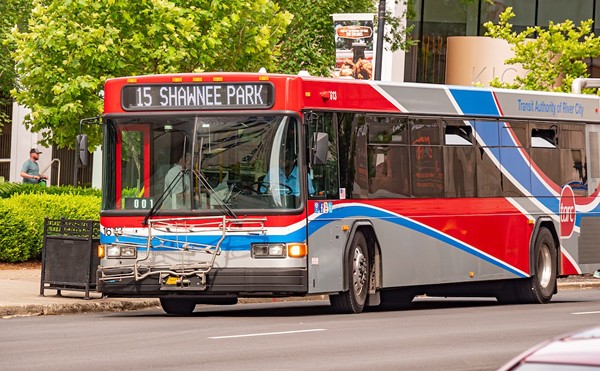In social media’s endless wisdom, one glorious meme summed up the charter school debate perfectly. It displayed a woman explaining: “My husband and I have decided the local parks just aren’t good enough for our kids. We’d rather use the country club, and we are hoping state tax dollars will pay for it. We are advocating for Park Savings Accounts, or PSAs. We promise to no longer use the local parks. To hell with anyone else or the community as a whole. We want our tax dollars to be used to make the best choice for our family.”
Now that you mention it, public transportation can be pretty inefficient, and at times dangerous. LEO Weekly employees — who provide a public service — should not have to endure such hardships. Kentucky taxpayers should provide LEO staff with Lyft vouchers. If the state will subsidize our enhanced travel operandi, we promise not to use public transportation again.
Also, given the spike in violence in the city, as well as the public profiles of LEO writers, we don’t believe Louisville Metro police can provide sufficient security for us. We should be allowed to hire a security force — a well-armed militia, if you will — paid for by the state.
That’s the thing about charter schools — they redirect resources away from public schools for privately-run, limited-access schools. Taxpayers would not be guaranteed that they can use the services paid for by their own tax dollars.
Studies show charter school education is not more effective than public schools — they don’t do anything public schools can’t replicate.
The Gov. Bevin & GOP Co. — Republican state lawmakers — tell us charters are a major reform that allows schools to be run like a business and innovate. No, charters are really just a way to claim a success when there are successes, and blame the failures on that one person, situation or, in some cases, fraud. They make public education a for-profit business.
In arguing for charters, Bevin & GOP Co. fall back on its favorite talking point: Look at what other states are doing, and follow those best practices. Unfortunately, as the legislation is in its 11th hour in Frankfort, this bill contains many pitfalls that have plagued charter systems in other states. Bevin & Co. is ignoring the exact promise they so often make as good governing.
For instance, other states have proven that, even as nonprofits, charter schools provide major for-profit opportunities. In order for a school to become a charter, an “authorizer” approves applications and continues as the overseer. All accountability of that not-for-profit charter school falls to the authorizer — a school board, collaborative of local school boards or even the mayor.
The trouble comes when an authorizer is, in Kentucky’s case, Bevin’s own Department of Education, or the mayors in Louisville or Lexington. Kentucky charters would operate with little oversight, while spending public funds, including entering into contracts with for-profit companies to manage the schools. This could include property leasing, facilities maintenance and even managing a school’s entire administration. That can be enormously lucrative for companies, which are not obligated to the same transparency as is a public institution.
Another major problem is that charters get taxpayer money based on how many students attend a given school. This motivates them to take in as many students as possible — that’s just good business, but not the type of outcome-based education philosophy suggested by say... educators. It is an easily defrauded system. It’s good business, so long as you don’t get caught and keep your contract.
This per-pupil funding also applies to online schools — yes! “Virtual public charter school” is a real thing. Other states have had trouble reliably tracking attendance at online schools, which means easily-fudged figures.
Bevin & GOP Co., drunk off conservative Kool-Aid, is too ignorant and lazy to try to reform education in a meaningful way. Charter schools are the lazy politician’s solution — we open the schools up for business, sit back and let the market do its thing. Kids end up as lab rats in each school’s for-profit innovation experiment.






